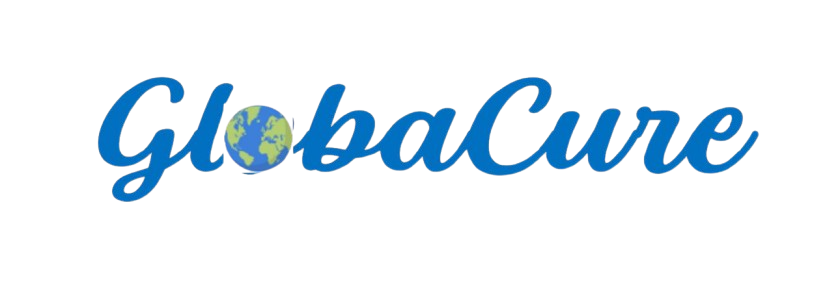
Project Development:
Crafting Strategic Plans for New Therapeutic Initiatives-
Developing innovative therapeutic initiatives involves creating strategic project plans that identify unmet medical needs, target patient populations, and leverage the latest research and technologies. This includes conceptualizing novel treatment approaches, conducting feasibility assessments, building scientific rationales, and outlining pathways to bring these initiatives to fruition. The focus is on establishing a comprehensive, forward-looking vision that integrates multidisciplinary expertise, timelines, resources, and key performance metrics to drive meaningful progress in healthcare innovation.
Project Management:
Overseeing Projects to Ensure Timely and Successful Outcomes-
Effective project management is crucial for the successful delivery of healthcare research and development projects. This encompasses initiating, planning, executing, monitoring, and closing projects to ensure they are completed on time, within scope, and within budget. It involves risk assessment, resource allocation, managing cross-functional teams, setting and maintaining timelines, coordinating stakeholder communication, and navigating potential obstacles—all to ensure the ultimate success of the project and the achievement of strategic objectives.


Product Development:
Guiding Products from Conception Through Clinical Trials to Market
Product development in the biopharmaceutical industry requires a detailed, end-to-end strategy for transforming an idea into a tangible therapeutic solution. This process starts with initial concept development and continues through rigorous preclinical research, clinical trials, regulatory approval, and ultimately to commercialization. It involves leading teams through key stages such as proof of concept, optimization of candidates, planning and executing clinical trial designs, managing regulatory submissions, and coordinating with commercial and marketing teams for launch preparation, all while ensuring alignment with quality standards and patient safety.
Bioassays:
In Vitro Screening and Drug Discovery
Our consultancy services focus on the development, optimization, and validation of bioassays to support in vitro screening and drug discovery. We provide expert guidance in designing assays that accurately reflect the biological systems of interest, ensuring relevance and reliability. Weworks closely with clients to optimize assay parameters for sensitivity, specificity, and reproducibility, tailoring each approach to the unique requirements of the target and intended application. We also offer thorough validation services to ensure that bioassays meet regulatory standards and industry best practices, facilitating successful screening campaigns and accelerating the path from discovery to development.


Preclinical Models:
Pharmacology, Toxicology, and Disease Pathogenesis
We provide comprehensive support in the development and application of preclinical models for pharmacology, toxicology, and disease pathogenesis. We offer expertise in designing and implementing a wide range of models, including humanized models that closely mimic human physiology and disease, to ensure the relevance and translatability of preclinical findings. Our services also include guidance on using non-invasive in vivo animal imaging techniques, allowing real-time monitoring of disease progression and treatment efficacy with minimal animal distress. Additionally, we assist in protocol development for IACUC approvals, biosafety, and regulatory compliance, ensuring that studies meet ethical and safety standards. By combining scientific insight with regulatory expertise, we help clients conduct successful preclinical studies, ultimately accelerating the development of safe and effective therapeutics.
Expert Consulting:
Providing Specialized Expertise in Various Fields of Health Research-
As an expert consultant, the goal is to provide specialized knowledge and solutions in health research across a range of areas, including drug development, clinical trials, regulatory strategy, and health economics. This role involves helping clients navigate complex challenges by offering evidence-based insights, strategic recommendations, and practical implementation advice to enhance research quality, accelerate timelines, reduce costs, and achieve regulatory compliance. Consulting services can also include designing experimental protocols, evaluating data, and advising on business strategies that align with scientific and market opportunities.


Strategic and Operational Leadership:
Assisting Organizations in Enhancing Their Operational Effectiveness
Strategic and operational leadership focuses on aligning an organization’s goals, vision, and resources to optimize performance and efficiency. This involves developing and implementing strategies that strengthen research capabilities, enhance productivity, and foster a culture of innovation and excellence. It includes leading process improvement initiatives, setting key performance indicators (KPIs), managing cross-functional teams, and supporting decision-making processes that drive operational success. By combining both strategic insight and practical execution, the aim is to support organizations in navigating challenges, maximizing resources, and achieving sustainable growth.
Translational Development Plans:
Creating Actionable Plans to Move Research from the Lab to Clinical Settings
Translational development is about bridging the gap between early scientific discoveries and clinical applications. This involves designing clear, actionable plans to take promising research findings through preclinical validation and into early-phase clinical trials. The goal is to create a systematic roadmap that includes target validation, biomarker development, animal model studies, and regulatory strategy to demonstrate the therapeutic potential of a candidate in a clinical setting. The focus is on integrating robust preclinical data with well-crafted clinical hypotheses to accelerate the bench-to-bedside transition.


Preclinical Efficacy and Safety Pharmacology Plans:
Ensuring Rigorous Evaluation of New Therapies Before Clinical Trials
Preclinical development requires a comprehensive approach to evaluate the safety and efficacy of potential therapies before they move into clinical trials. This includes designing and executing in vitro and in vivo experiments that assess pharmacokinetics, toxicology, and therapeutic efficacy. Rigorous safety pharmacology studies are conducted to identify any potential adverse effects, while efficacy studies help establish proof-of-concept. The goal is to generate robust, reliable data that support regulatory submissions and demonstrate a candidate’s readiness for clinical testing, ultimately ensuring patient safety and maximizing therapeutic value.
Regulatory Compliance Plans:
Navigating the Complexities of Regulatory Requirements for Research and Product Development
Regulatory compliance is essential in ensuring that new therapeutic products meet safety, efficacy, and quality standards. This involves developing comprehensive regulatory strategies that address the complex requirements set by health authorities such as the FDA, EMA, or other regulatory bodies. Key activities include preparing and submitting pre-IND, IND, NDA, or BLA applications, managing interactions with regulatory agencies, and ensuring that all research activities are conducted according to Good Laboratory Practice (GLP) and Good Clinical Practice (GCP) standards. A focus on compliance not only facilitates approvals but also helps mitigate risks throughout the product lifecycle.


Clinical Pharmacology and Development Plans:
Supporting Pre-IND and IND Applications for New Therapies
Clinical pharmacology plays a critical role in the early development of new therapies, providing the data needed to support Investigational New Drug (IND) applications. This includes developing clinical development plans that outline first-in-human studies, dose escalation strategies, and pharmacokinetic/pharmacodynamic (PK/PD) assessments. By gathering and interpreting early-phase clinical data, the goal is to understand the safety, efficacy, and dosing of a new therapy, which forms the basis for regulatory submissions and the advancement of the compound through clinical phases.
Biomedical Communications:
Crafting Clear and Impactful Communication Strategies for Health Initiatives
Biomedical communication is about effectively translating complex scientific information into clear, engaging, and impactful messages for diverse audiences, including scientists, healthcare professionals, policymakers, and the general public. This involves preparing scientific publications, regulatory documents, educational content, and marketing materials that convey the significance of research findings or therapeutic innovations. A key focus is ensuring accuracy, clarity, and strategic alignment, thereby supporting knowledge dissemination, regulatory compliance, public engagement, and the overall impact of health initiatives.


Global Health Education & Training:
Offering Educational Programs to Enhance Skills in Global Health
Global health education and training aim to empower healthcare professionals, researchers, and policymakers with the knowledge and skills needed to address global health challenges. This involves designing and delivering workshops, seminars, and e-learning programs on topics such as disease prevention, clinical research methods, epidemiology, and health systems strengthening. By fostering skills development and providing evidence-based training, the goal is to improve global health outcomes and build capacity within health systems worldwide.
Global Collaboration:
Facilitating Partnerships to Advance Health Solutions
Global collaboration is key to tackling complex health challenges that transcend borders. This involves identifying, establishing, and managing partnerships between research institutions, pharmaceutical companies, NGOs, and government agencies to advance health solutions. The focus is on fostering an environment of collaboration that enhances resource sharing, supports multi-country clinical trials, aligns regulatory standards, and drives innovation in public health. Through these partnerships, the ultimate goal is to create sustainable solutions that improve health outcomes globally.


